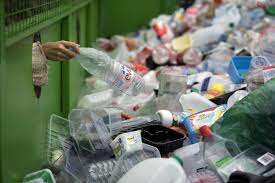
Unlocking the Potential: Innovative Ways to Recycle Plastics
Plastics have become an important part of our lives, however removal poses substantial environment difficulties. Recycling plastics is a vital step towards sustainability, minimizing pollution, and conserving solutions. Here’s everything you need to know about recycle plastics:
1. Kinds of Recycled Plastics: Plastics are sorted into seven resin recognition regulations, which range from PET (#1) with other (#7). Reused plastics are normally defined as rPET (reused Animal), rHDPE (re-cycled substantial-occurrence polyethylene), and many others. These supplies are from article-buyer or post-manufacturing spend and highly processed for reuse.
2. Recycling Process: Recycling plastics consists of a number of levels. Very first, gathered plastics are sorted by kind and colour. Then, they’re cleansed to take out contaminants like tags and adhesives. After searching and washing, plastics are shredded into tiny parts or dissolved as a result of develop pellets, all set for producing new releases.
3. Ecological Rewards: Recycling plastics conserves organic sources by reduction of the necessity for virgin components. In addition, it diminishes vitality usage and green house fuel emissions related to plastic generation. Additionally, recycling assists minimize plastic pollution, protecting against plastics from ending up in trash dumps or oceans.
4. Challenges: Despite its positive aspects, recycling plastics facial looks difficulties. Pollution, a result of mixing different types of plastics or non-recyclable components, reduces the standard of reused items. Moreover, substandard infrastructure and lower buyer consciousness hinder effective plastic recycling.
5. Software: Reused plastics get software in various businesses, such as wrapping, design, vehicle, and textiles. Products made from reprocessed plastics cover anything from bottles and containers to home furniture and clothing. Breakthroughs in modern technology have allowed using reused plastics in additional advanced applications.
6. Client Obligation: Customers engage in an important role to promote plastic recycling. Suitable fingertips of plastic spend, such as splitting recyclables from common waste materials, will help improve the recycling approach. Picking items created from reused plastics stimulates need for environmentally friendly components.
7. Future Prospect: The way forward for recycling plastics appears guaranteeing with continuous study and innovation. Advancements in recycling technologies, for example chemical substance recycling and bio-degradable plastics, offer you probable strategies to present problems. Collaborative endeavours among governing bodies, industries, and individuals are essential for acknowledging a circular overall economy for plastics.
To summarize, recycle plastics is essential for reducing enviromentally friendly impact and promoting sustainability. Understanding the recycling approach, its advantages, difficulties, and consumer responsibilities is critical for effective plastic waste materials managing. Embracing recycled plastics plays a role in a environmentally friendly, healthier planet for future generations.